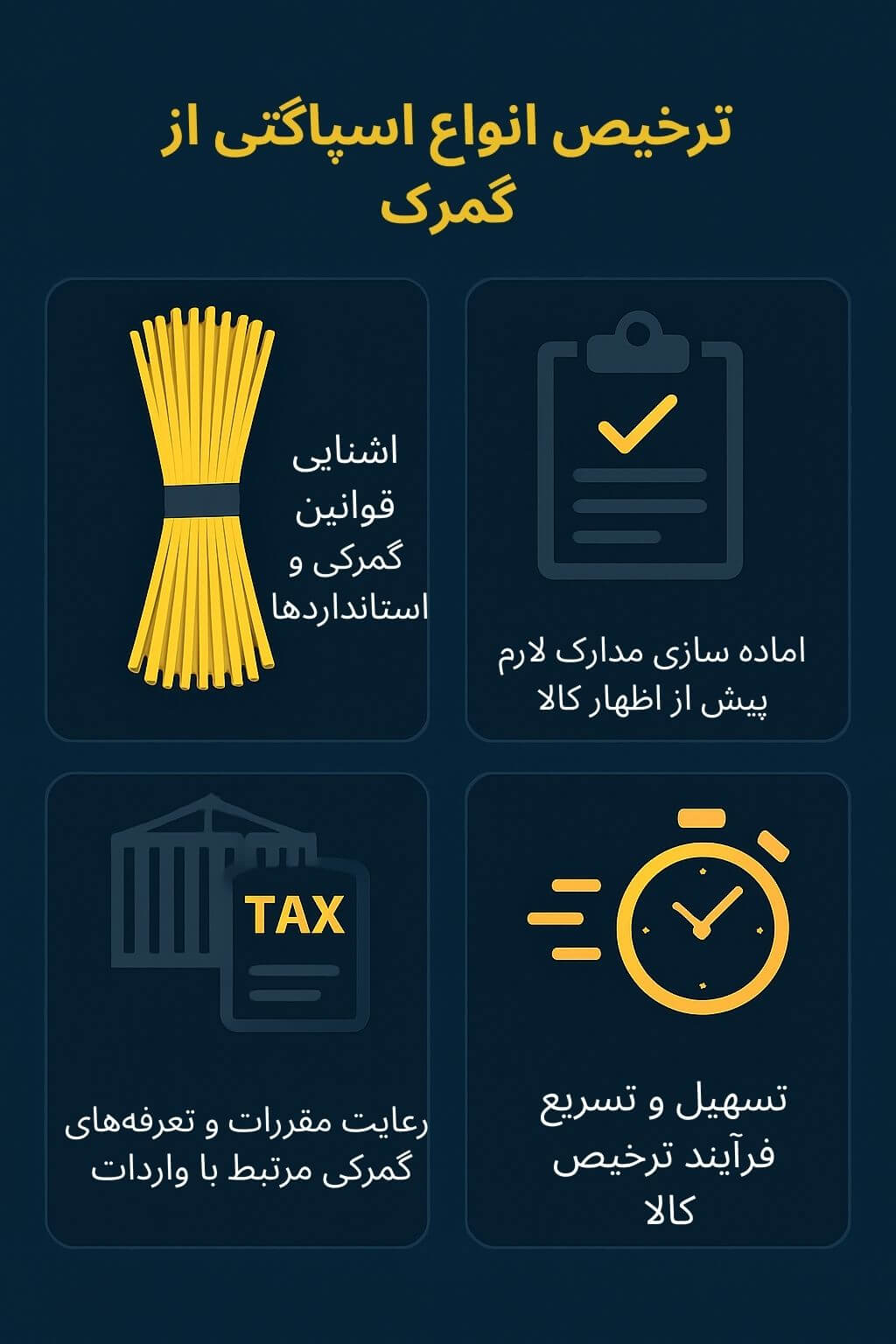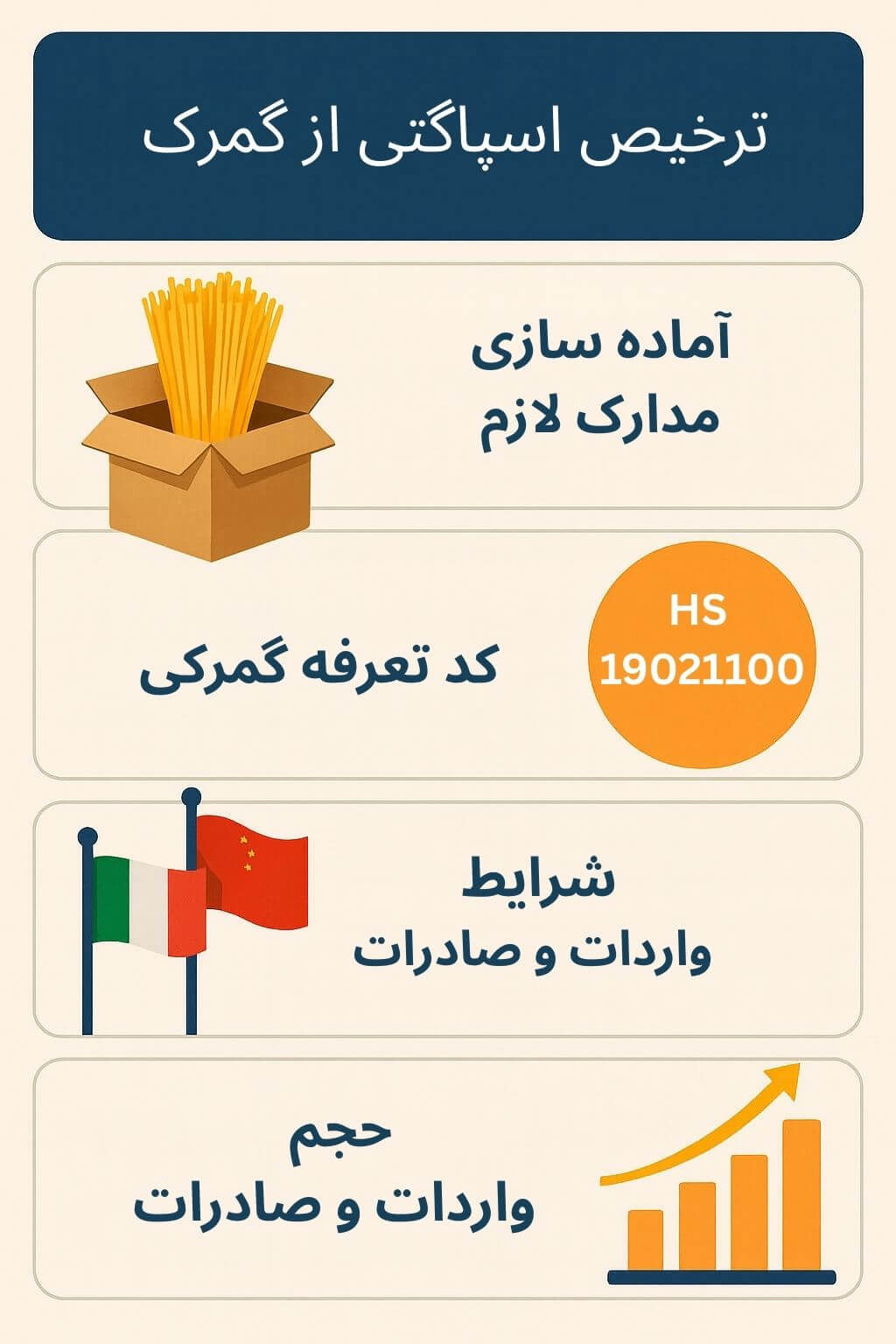Clearance of Various Types of Spaghetti from Customs
For estimating the time and cost of spaghetti clearance, contact the experts at Saba Tarkhis.
Free & Immediate Consultation
Customs Tariff Code (HS Code) for Spaghetti
| Product | Short Description | HS Code |
|---|---|---|
| Spaghetti (Dry Pasta) | Dry pasta without additives, uncooked | 19021100 |
Special Conditions for Import and Export of Spaghetti
Volume of Spaghetti Imports and Exports to Iran
Global Spaghetti Turnover
Spaghetti Exporting and Importing Countries

Steps and Required Documents for Spaghetti Clearance
-
Delivery Order: Issued by the shipping company, confirming that the spaghetti shipment has arrived at customs and is ready for delivery. Without this document, clearance cannot begin.
-
Invoice: Specifies full details of the shipment including quantity, weight, unit, and total price. Used for customs valuation and calculating duties.
-
Bill of Lading: Contains transportation details from origin to destination, proving ownership and transport terms.
-
Health Certificate: Issued by health authorities of the origin country, confirming the spaghetti is safe for consumption. Essential for all food imports.
-
Inspection Certificate: Proves shipment compliance with contract terms in quality and quantity. Usually required for large or sensitive imports.
-
Certificate of Origin: Confirms the country of origin of the imported spaghetti, important for tariff determination and preferential trade agreements.
-
Laboratory Report: In special cases, Iranian customs may require lab results to verify quality and safety of the product.
-
Iran Standards Organization Permit: Required for some food items including spaghetti, ensuring compliance with Iranian national standards.
-
Order Registration Certificate: Every importer must register their order with the Ministry of Industry, Mine, and Trade system before importing.
-
Customs Declaration: Contains full shipment information including value, origin, and type of goods, used for customs assessment and clearance.
-
Ministry of Health Import Permit: In certain cases, food imports like spaghetti require approval from the Ministry of Health to ensure public safety.
Exclusive Saba Brokerage Services for Spaghetti Clearance
Saba Brokerage, as one of the most reputable and professional customs brokers, offers exclusive services in spaghetti clearance. With extensive experience in food clearance and full knowledge of customs rules, it assists importers and exporters at every stage. Key services include:
Specialized Consultation
Expert team provides professional advice on customs laws, health standards, and required documents for smooth clearance.
Document Preparation
All necessary documents such as health certificates, invoices, bills of lading, and certificates of origin are timely prepared and submitted.
Coordination with Authorities
Strong relations with organizations like the Food and Drug Administration and Ministry of Health ensure permits are obtained quickly.
Accurate Tariff Calculation
Precise calculation of clearance costs and customs tariffs reduces expenses and optimizes imports.
Clearance Tracking
The entire clearance process is continuously tracked, with transparent updates shared with clients.
Optimized Transport Solutions
Best domestic and international logistics solutions ensure food products are delivered quickly and safely.
.png)
